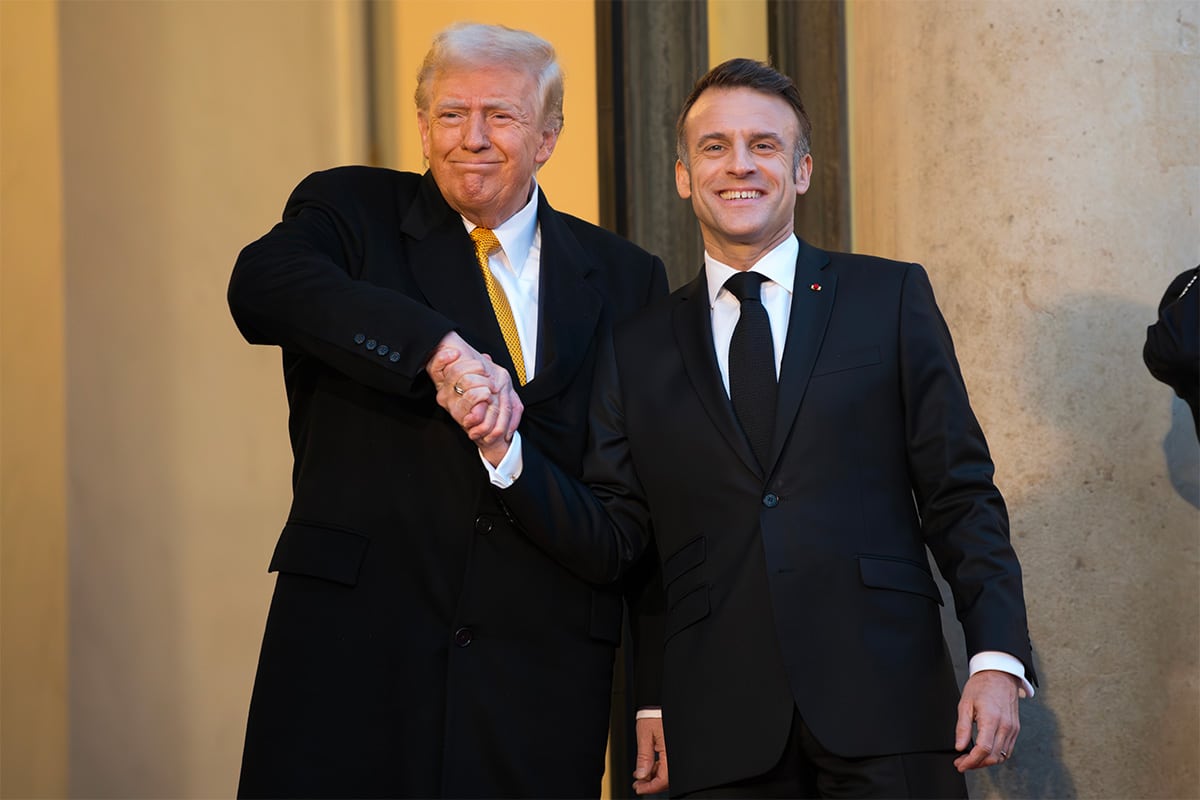80 Years After the End of World War II, Most French No Longer See the U.S. as an Ally and Strongly Support Strategic Autonomy for Europe
In just a few months, Donald Trump has upended the international order established in the wake of World War II. By threatening to abandon Ukraine, withdraw security guarantees for Europe, and even annex NATO members like Canada and Greenland, he has severely damaged the image of the United States in French public opinion.
With Trump openly questioning the Euro-Atlantic security architecture created after the war, the U.S. no longer appears to be an “ally” in the eyes of many French citizens. Today, only 27% consider the United States an “ally,” while 34% view it as a “neutral country,” and 26% see it as an “enemy country.”
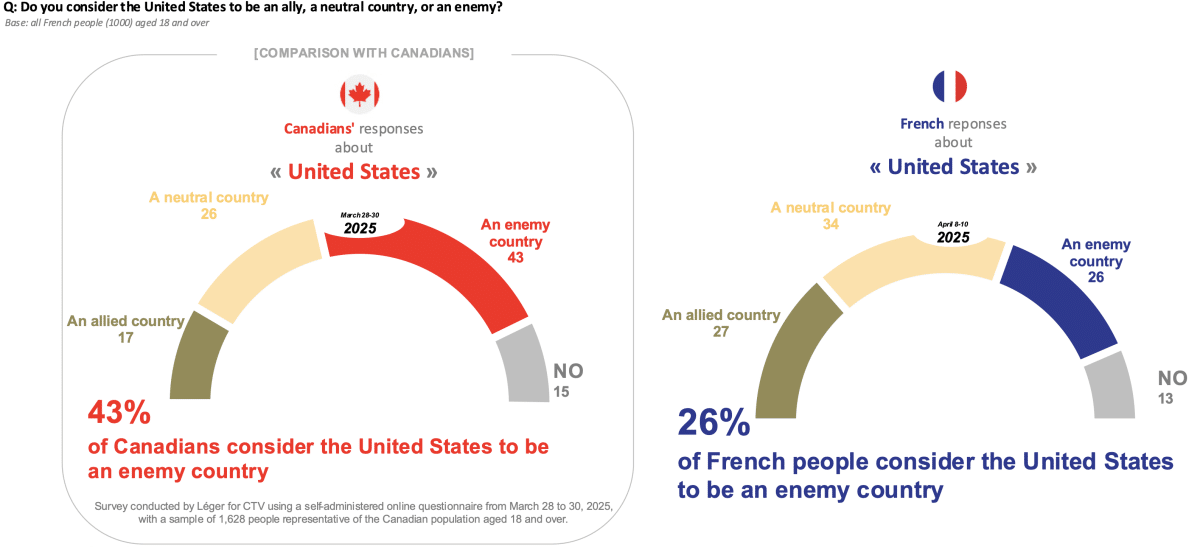
This perception is particularly strong among the French far left (e.g., 34% among LFI supporters), but overall, the belief that Trump’s America is an “enemy country” remains more moderate in France (26%) than in a directly threatened country like Canada, where 43% now hold that view.
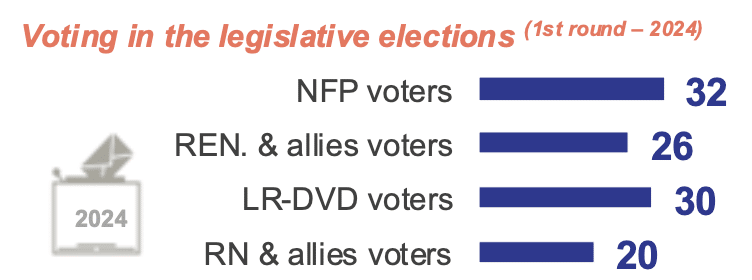
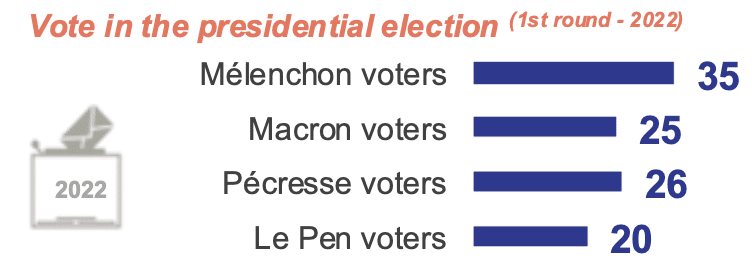
In contrast, a majority of Americans (54%) still see France as an “ally,” with 35% describing it as “neutral” and just 2% labeling it an “enemy”—a view especially common among older Americans (70% of seniors) and those with higher education levels (64% of college graduates).
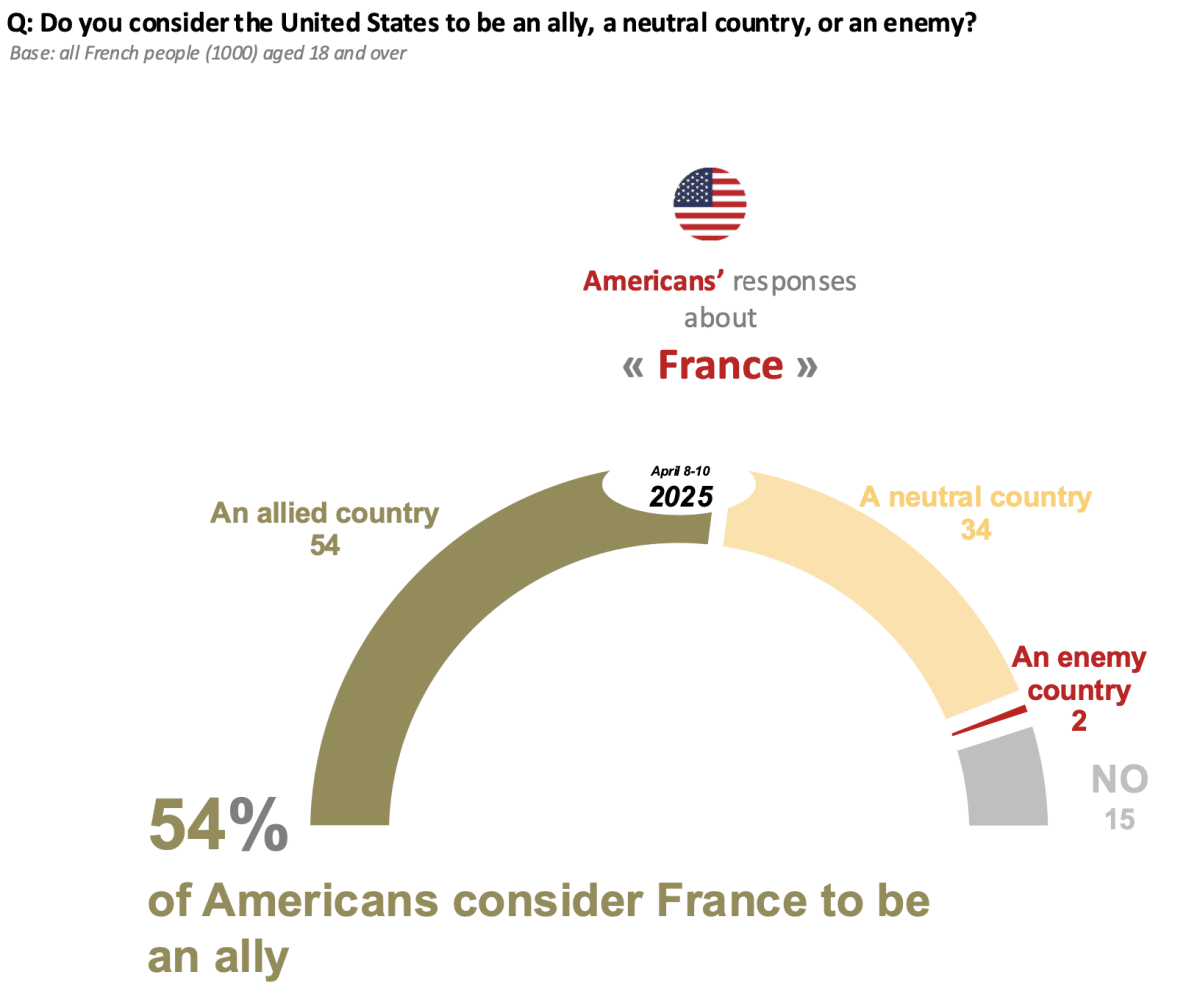
In this context of declining trust in transatlantic security ties, a majority of French citizens (58%) support the idea of a “fully independent European defense”.
Only 34% favor a “joint defense system between the U.S. and Europe,” a figure that is half of what it is across the Atlantic, where 63% of Americans continue to support this idea.
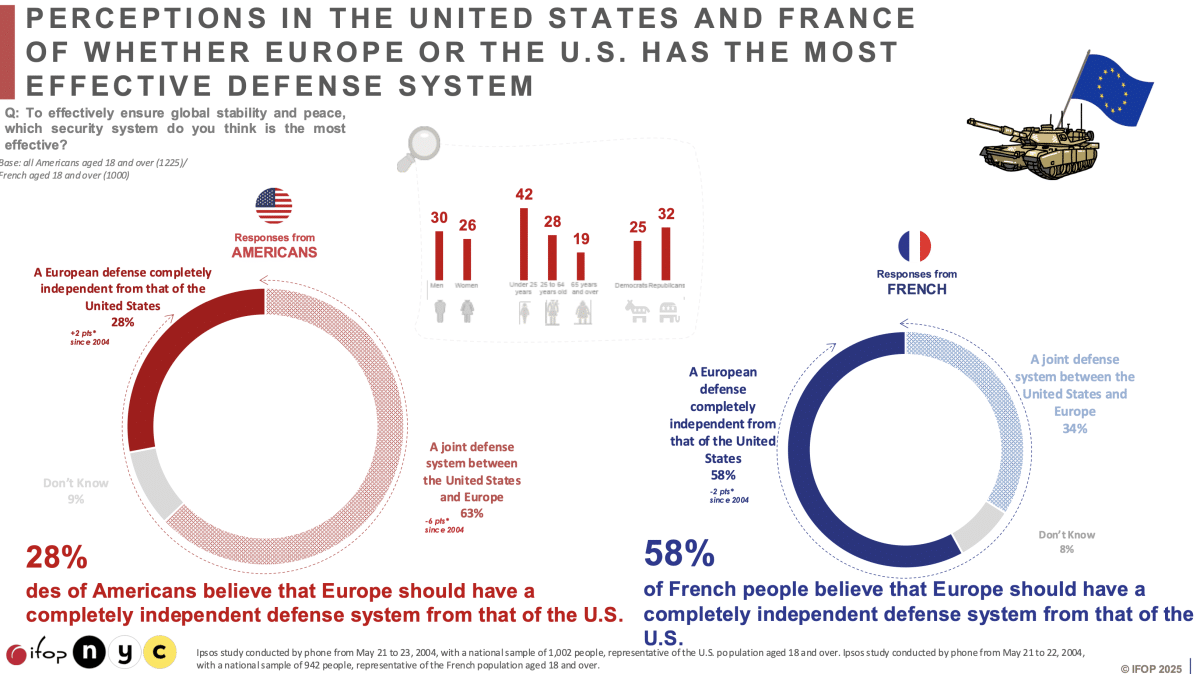
François Kraus of Ifop:
“The diplomatic shock brought on by this American shift has caused a profound loss of trust among citizens in France and Canada—two countries that long viewed the U.S. as a close friend. This study confirms what many experts
predicted: that people would increasingly conclude that ‘the United States is no longer our ally.’ In this new climate of transatlantic doubt, it’s not surprising that most French people are now calling for strategic autonomy for Europe—even in the face of the Russian threat.” [1]
Christian Lequesne, RFI – 1 March 2025. [1]
Historical Context: Ifop Looks Back in Time
Donald Trump’s claim that the U.S. did most to defeat Nazi Germany clashes with French memory of WWII
On May 2, 2025, Donald Trump declared that the U.S. “did more than any other country, by far, to achieve victory in World War II.” This contrasts sharply with how the French saw things in 1945. According to an Ifop poll conducted that year, 57% credited Stalin’s USSR with defeating Nazi Germany—far ahead of the United States (20%) and Great Britain (12%).
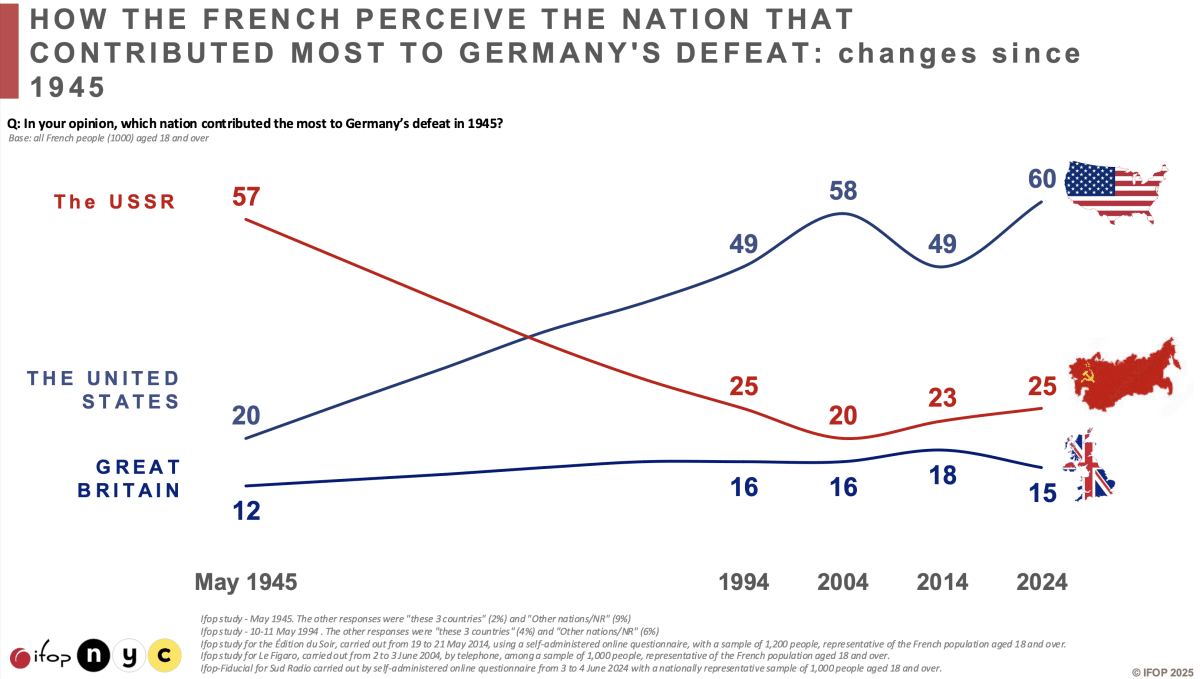
At the time, French people remembered “the suffering endured by the Russian people,”
François Kraus of Ifop:
“As Donald Trump announces plans to rename May 8 as ‘Victory Day,’ it’s clear that his interpretation of America’s role in WWII is not fringe. Over the past 80 years, the U.S. Army’s decisive role in defeating the Axis has become firmly embedded in the collective memory of the French—especially among younger generations. The current Russian invasion of Ukraine is unlikely to help Moscow rehabilitate its WWII legacy.”
Canada, Greenland, Panama… The Decline of U.S. Image Mirrors Rejection of Trump’s Imperial Ambitions
This drastic shift in how the U.S. is perceived is directly tied to the Trump administration’s threats: ending support for Ukraine, annexing NATO members like Canada and Greenland, and asserting control over the Panama Canal—all of which have been strongly rejected on both sides of the Atlantic.
Trump recently reiterated his intentions regarding Canada and Greenland in an NBC News interview. But these ambitions are far from popular: 78% of French people oppose the annexation of Canada, 77% oppose annexing Greenland, and 75% reject U.S. control of the Panama Canal.
Likewise, majorities of Americans oppose these ideas: 68% reject using economic pressure to annex Canada, and 70% oppose using military force to annex Greenland.
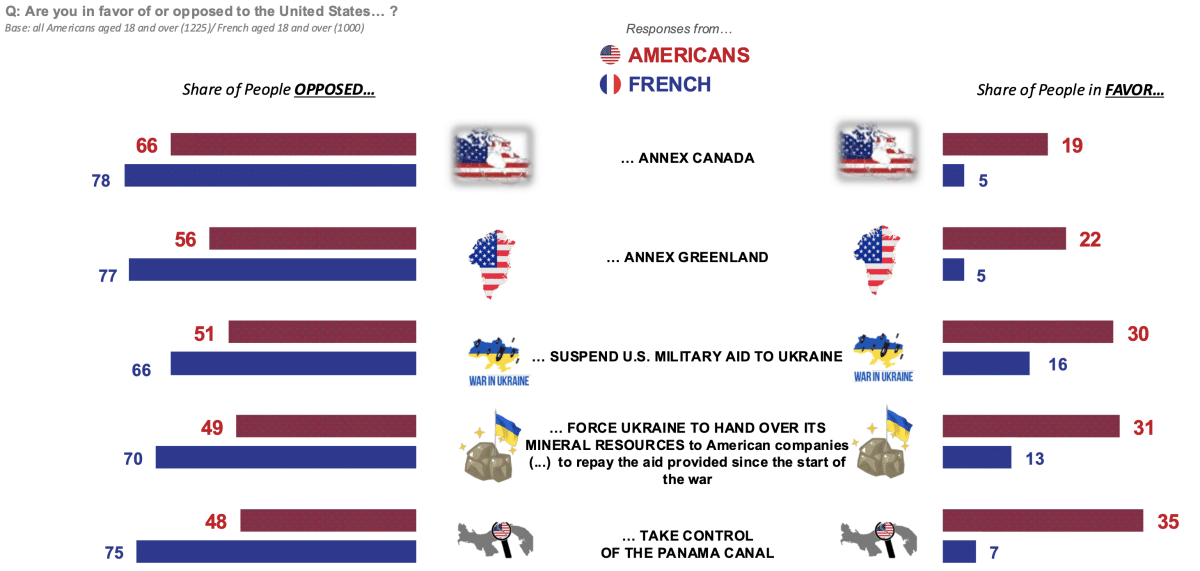
Trump’s proposal to suspend U.S. military aid to Ukraine is also widely unpopular: 51% of Americans and 66% of French respondents oppose the idea.
Likewise, similar majorities oppose forcing Ukraine to give up its mining resources.
These views reveal deep divisions, similar to those seen during the last U.S. presidential election.
For instance, support for annexing Greenland is significantly higher among men (26%) than women (18%), especially among younger men: 33% of men under 35 support annexing Canada, compared to just 15% of women in the same age group.
François Kraus of Ifop:
“These results show that Trump’s North American expansionist ambitions don’t resonate with most of his own supporters. The limited support that does exist comes largely from young men—a form of ‘youthful masculism,’ perhaps, that channels aggressive fantasies into geopolitical wishful thinking. The fact that this group overlaps heavily with gamers is also telling.”
French Opposition to U.S. Imperialism Strong Enough to Justify Military Response
At a time when the world commemorates the Allied victory over German imperialism, it’s worth asking just how far the French would go to oppose Trumpian imperialism—particularly if it targets NATO members like Canada or EU-associated territories like Greenland.
French opposition runs deep: 44% say France should “use military force if necessary” to prevent the annexation of Canada, with a similar number (43%) saying the same about Greenland.
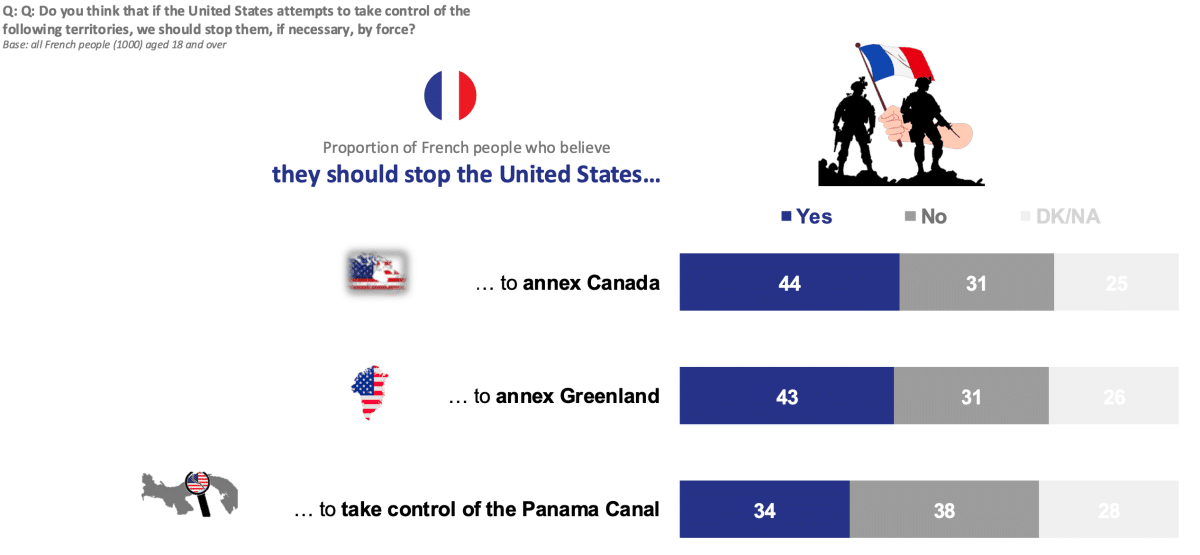
As in 1939, resistance to military action in defense of international law is strongest on the far right: only 32% of RN supporters back military intervention to defend Canada, compared to 65% of LFI supporters.
In 1939, neo-socialist and future collaborator Marcel Déat notoriously asked, “Should we die for Danzig?” (L’Œuvre, May 2, 1939), refusing to confront Nazi expansionism.
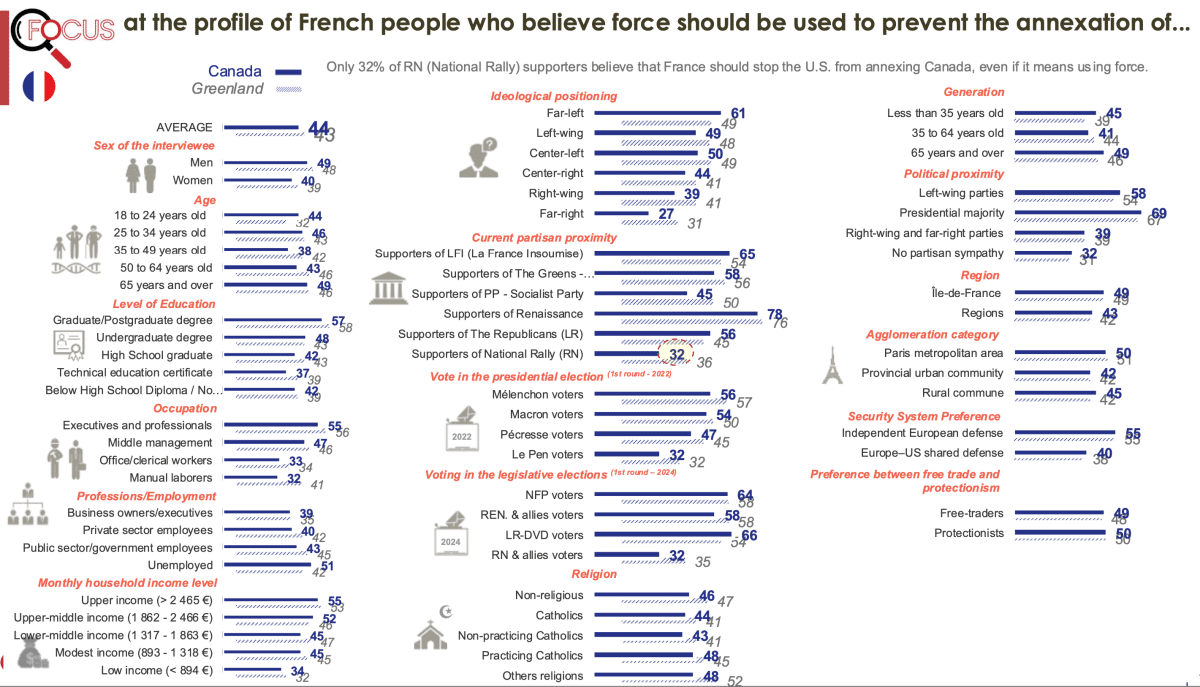
Ifop Looks Back Again: Then vs. Now
A comparison with 1939 shows that the French are less ready to use force today: back then, 76% supported defending Danzig from Germany, whereas today just 43% would support defending Greenland against the U.S.
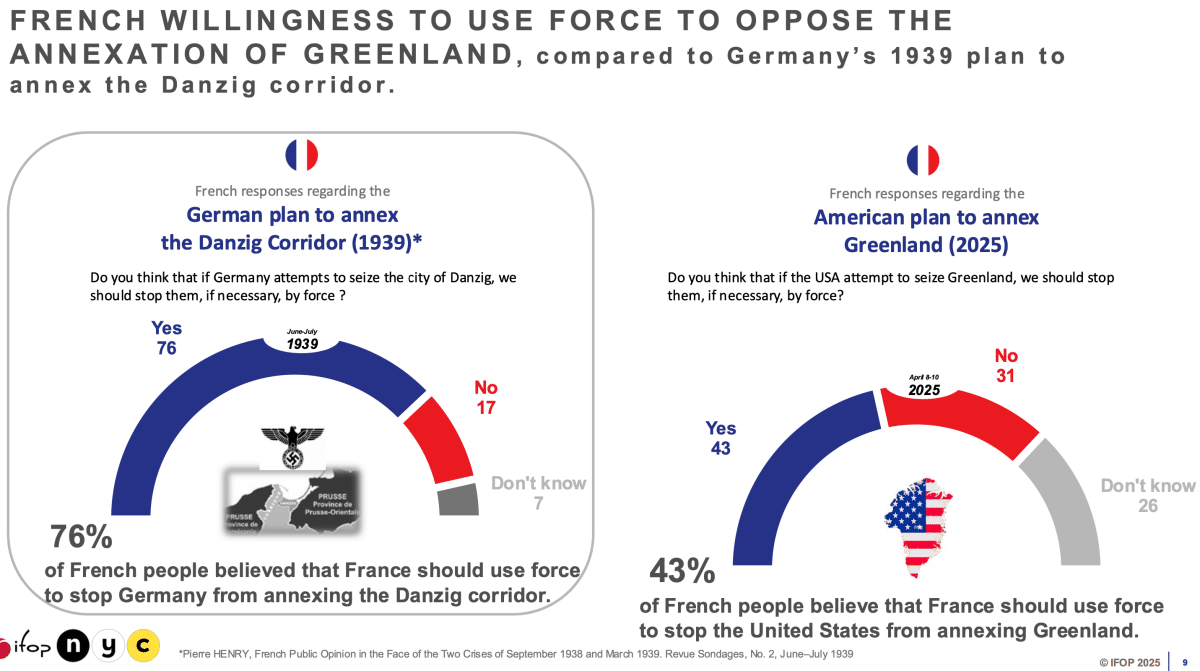
François Kraus of Ifop:
“By tearing down the post-WWII order, Donald Trump has transformed the image of the United States—from longtime ally to potential adversary, even in the military sense. While most French don’t yet see this threat as existential—likely due to the geographic distance—it’s clear that with this new Trump era, the Western alliance born in 1945 is coming to a close.”
François Kraus, Director of the Politics & News Department, Ifop
Contact: +33 6 61003776 – francois.kraus@ifop.com
To cite this study, please use the following wording:
“ Ifop survey for NYC.eu conducted via online self-administered questionnaire among a nationally representative sample of 1,225 Americans aged 18 and over (8-10 April 2025), and a nationally representative sample of 1,000 French people aged 18 and over (9-10 April 2025). For comparison purposes, a probability sample of this size would have a margin of error of no more than ±3% (19 times out of 20)”.
